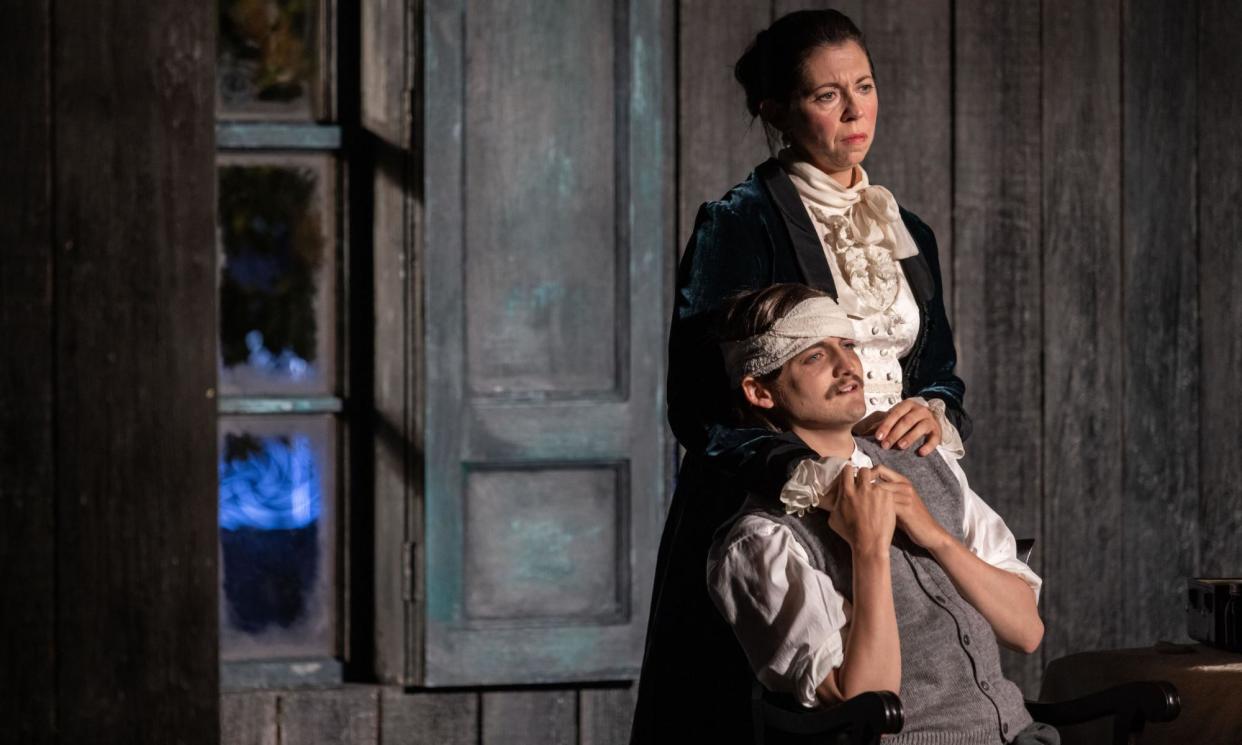Thomas Kilroy obituary

The plays of Thomas Kilroy, who has died aged 89, presented Ireland with a moving picture of its development from the 1950s to the present day. As he said at the age of 80: “Socially and in terms of religion, something big is being dismantled and that is very exciting.”
His career was characterised by the personal and professional courage that this kind of drama required. Refusing to be conditioned by the expectations of his audience, Kilroy encouraged them to think outside the boxes of religion, social conventions and sexual mores, and he gave voice to unspoken fears and anxieties.
Each play challenged an aspect of Irish society and suggested an “other” way of seeing. His first staged play was The Death and Resurrection of Mr Roche (1968), the first in Ireland to address homophobia. Talbot’s Box (1977, which went to the Royal Court theatre in London) examined the nature of religious fervour. The Madame MacAdam Travelling Theatre (1991, which went to the Irish Repertory theatre in New York) set the universal blackness of the second world war against the small-town preoccupations of rural Ireland. A pair of plays on Oscar Wilde, The Secret Fall of Constance Wilde (1997) and My Scandalous Life (2004), opened up the unspoken privacies of lives lived spectacularly in public.
While many of his works were premiered by the Abbey theatre, Dublin – Ireland’s national theatre – he felt that early in his career London managements were resistant to Irish plays, and reviewers gave the impression that they “didn’t call for serious attention”. Nonetheless, in 1981 the Royal Court commissioned his adaptation of Chekhov’s The Seagull, which was premiered in London, with a strong performance from Alan Rickman, and only then taken up by the Irish Theatre Company in Tralee. In 2021 Druid Theatre Company mounted a production of it in Coole Park, Galway.
Kilroy was fascinated by the “gaps” in history, in which a playwright could exercise the imagination, “to invent a reality which may reflect everyday life but is still distinct from it”. This led him towards his masterpiece, Double Cross (1986), written for Field Day, the theatre company founded by Brian Friel and Stephen Rea. He was attracted to their work because “it provided a platform for the life of the mind at a time when mindlessness threatens to engulf us all”. Double Cross juxtaposed the figures of Brendan Bracken, Winston Churchill’s minister of information in the second world war, and William Joyce (Lord Haw-Haw, the Nazi broadcaster) – two Irishmen bound together in symbiosis by a playwright fascinated by the idea of doubleness, and the ironic ambiguities of Irish identity. They never met in life but, through the figure of a single actor playing both parts – Rea in the premiere – they confronted one another’s sense of both loyalty and betrayal.
Kilroy also scored a triumph with his debut novel, The Big Chapel (1971), set in his native County Kilkenny, with religion and violence at its centre. It won the Guardian fiction prize and the Heinemann award for literature, and was shortlisted for the Booker prize. He wrote an unpublished sequel, and left at least one more unfinished novel behind him.
Kilroy was born in Callan, between Kilkenny and Clonmel, one of 10 children of May (nee Devine) and Thomas Kilroy, a police sergeant. Both parents had been active in the Irish war of independence, and Kilroy was very conscious of belonging to the last generation who would hear stories of Ireland’s emergence in the form of memories rather than histories. He recalled his parents in Over the Backyard Wall (2018), an autobiography that went up to the 1960s.
From St Kieran’s college, Kilkenny, he went to University College Dublin, where he he gained a degree in English. After working as a teacher and headteacher, he returned to UCD in 1965 as a senior lecturer covering the fields of English, and Anglo-Irish and 18th-century drama. He became professor of English at University College, Galway (1978-89), while also holding visiting positions at Notre Dame, Vanderbilt and McGill universities in North America. At the age of 55, he made the transition to full-time playwriting.
I would gladly watch two mice crossing a stage, provided that they were well lit and displayed a sense of purpose
Catholic-educated, he resisted the claims of authority, whether spiritual or political; in his drama this became, as one critic put it, “radically conceptual”. In Mr Roche, as he put it, he “got the courage to emerge from underneath the soutane” – the cassock. His individuality shows in portraits by the artists Brian Bourke and John Behan: a forbidding, almost querulous exterior, camouflaging the private man who was drily humorous but shy to the point of diffidence.
He was, in the words of his friend the poet Gerald Dawe, “unenamoured by ego” and “passionately secular”. Kilroy himself said in his essay The Irish Writer: Self and Society, 1950-80 that he was “appalled by what happens when the intense, concentrated hopes, fears, beliefs of the private person are subjected to the fragmenting, diffusionary effects of public life”.
Although he embraced new stage techniques, Kilroy never strayed from theatrical conventions. When challenged that his work was not experimental, he replied: “I would gladly watch two mice crossing a stage, provided that they were well lit and displayed a sense of purpose.”
In 1963 he married Patricia Cobie, with whom he had three sons, Hugh, Lorcan and Desmond. They divorced in 1980, and seven years later he married Julia Carlson, with whom he had a daughter, Hannah May. He is survived by Julia and his children.
• Thomas Francis Kilroy, playwright, born 23 September 1934; died 7 December 2023


